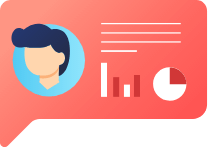Privacy Policy
Generator
Make a free privacy statement for your website, app, or online store. Observe laws such as the PIPEDA, CCPA, CalOPPA, and the GDPR. One of 2023's top generators of privacy policies




Designed for All Businesses
Website Mobile App Ecommerce site SaaS
Adheres to Privacy Laws
Website Mobile App Ecommerce site SaaS
Simple to Use
Website Mobile App Ecommerce site SaaS
How Does Our Privacy Policy
Generator Work?
Just follow these simple steps to get a custom, compliant privacy
policy for your business, software, site, or app

Generate a Free Privacy Policy
Most blogs and websites don't even realise they require privacy rules. Create a unique privacy policy for your website to stay within the law. Our products work with a variety of platforms, including WordPress, Godaddy, Weebly, and others.
Even though you are exempt from regulations like the GDPR and CCPA, some app stores, like Apple's App Store and Google Play, demand that your app have a privacy policy. By studying the requirements set forth by app stores and releasing a privacy statement, you can avoid having your app stopped or uninstalled.
You need to have a privacy policy in order to use some third-party services and technologies, such as Google Analytics and Google Maps. With our free privacy policy generator, you can quickly create the ideal app privacy policy.
A privacy statement is required for your subscription-based service to cover the gathering of user information. According to privacy rules, email addresses, financial information, and more are all considered personal data. A free privacy policy will keep your SaaS software anonymous.
Facebook requires apps on its platform to publish a privacy policy. You’ll need to have a privacy policy link ready before your app can go live. Facebook’s Platform Terms lists the requirements you’ll need to meet. Your privacy policy will also need to comply with any relevant laws.
Some third-party services, such as AdSense and Facebook Marketplace, require you to submit a compliant privacy policy even if you don't believe you need one. To meet the needs of your third-party tool, you may establish a customised policy with the aid of our free privacy policy generator.
Benefits from using our Privacy Policy
Latest ekit news
Ekit Latest News
Privacy Policy Generator FAQ
If you gather any personal information or personal data from users, you must have a privacy policy in accordance with international legislation and contemporary business practises. Personal data can contain cookie information, IP addresses, email addresses, and more in addition to names and addresses.
A privacy policy is a legal statement outlining how a business or website gathers, utilises, and disseminates personal data. Information about what personal data is collected, how it is used, whether it is shared with third parties, how users can control their data, and other topics should be covered in privacy policies.
A privacy policy is essential for your online business, website, or app because it informs users about the personal information you collect, how you use and store it, and how you protect their privacy. It helps build trust with your users, demonstrates your commitment to data protection, and ensures compliance with various privacy laws and regulations.
A comprehensive privacy policy should include the following information:
- Types of personal information collected
- Purpose of collecting personal information
- How personal information is used and shared
- Third parties with whom personal information is shared
- Data retention and security measures
- User rights and choices regarding their personal information
- Cookies and tracking technologies used
- Information regarding children’s privacy (if applicable)
- Contact information for inquiries or concerns
To ensure compliance with privacy laws, you should review the specific requirements of each applicable law and tailor your privacy policy accordingly. Some common elements to consider include:
- Consent: Obtain explicit consent from users before collecting their personal information.
- Data Subject Rights: Inform users of their rights, such as the right to access, rectify, and delete their personal information.
- Data Transfers: Provide information about any cross-border transfers of personal information and ensure appropriate safeguards are in place.
- Cookie Consent: Implement a cookie banner or consent mechanism to obtain user consent for the use of cookies and similar technologies.
- Third-Party Disclosures: Disclose any third parties with whom you share personal information and outline the purposes for sharing.
- Clear Language: Use clear and easily understandable language to explain your data practices to users.
Your privacy policy should be reviewed and updated regularly to ensure it accurately reflects your data practices and compliance with applicable laws. Major changes to your data handling practices or legal requirements should prompt an immediate update. Additionally, it’s a good practice to inform users of any material changes to the privacy policy and provide them with an opportunity to review the updated version.
Yes, you can use privacy policy generators like Quillbot or other reputable privacy policy generators as a starting point to create your privacy policy. However, it is important to review and customize the generated policy to accurately reflect your specific data practices and legal obligations. Generic privacy policies may not adequately address the unique aspects of your business or the specific privacy laws that apply to you.
: It is not recommended to directly copy a privacy policy from another website or business. Privacy policies should be tailored to your specific business practices and legal requirements. While you can use other privacy policies as a reference or starting point, it is important to customize and adapt the policy to accurately reflect your own data collection, usage, and disclosure practices.
: If your website or app targets users who primarily speak a language other than the one in which your privacy policy is written, it is a good practice to provide a translated version of your privacy policy. This helps ensure that users can understand the policy and make informed decisions about their privacy. However, the specific legal requirements regarding multiple languages may vary depending on the jurisdictions you operate in, so it is advisable to consult with a legal professional.
Your privacy policy should be easily accessible and prominently displayed on your website or app. Common locations include the footer of your website, a dedicated “Privacy Policy” link in the main navigation menu, or during the user registration process. It is important to make sure that users can find and review your privacy policy before providing any personal information or engaging with your services.
Operating without a privacy policy can leave your business exposed to legal risks and penalties. Many jurisdictions, including the GDPR and CCPA, require businesses to have a privacy policy that clearly communicates their data practices to users. Failing to comply with these laws can result in regulatory investigations, fines, and reputational damage. Having a comprehensive and up-to-date privacy policy helps demonstrate your commitment to privacy and builds trust with your users.